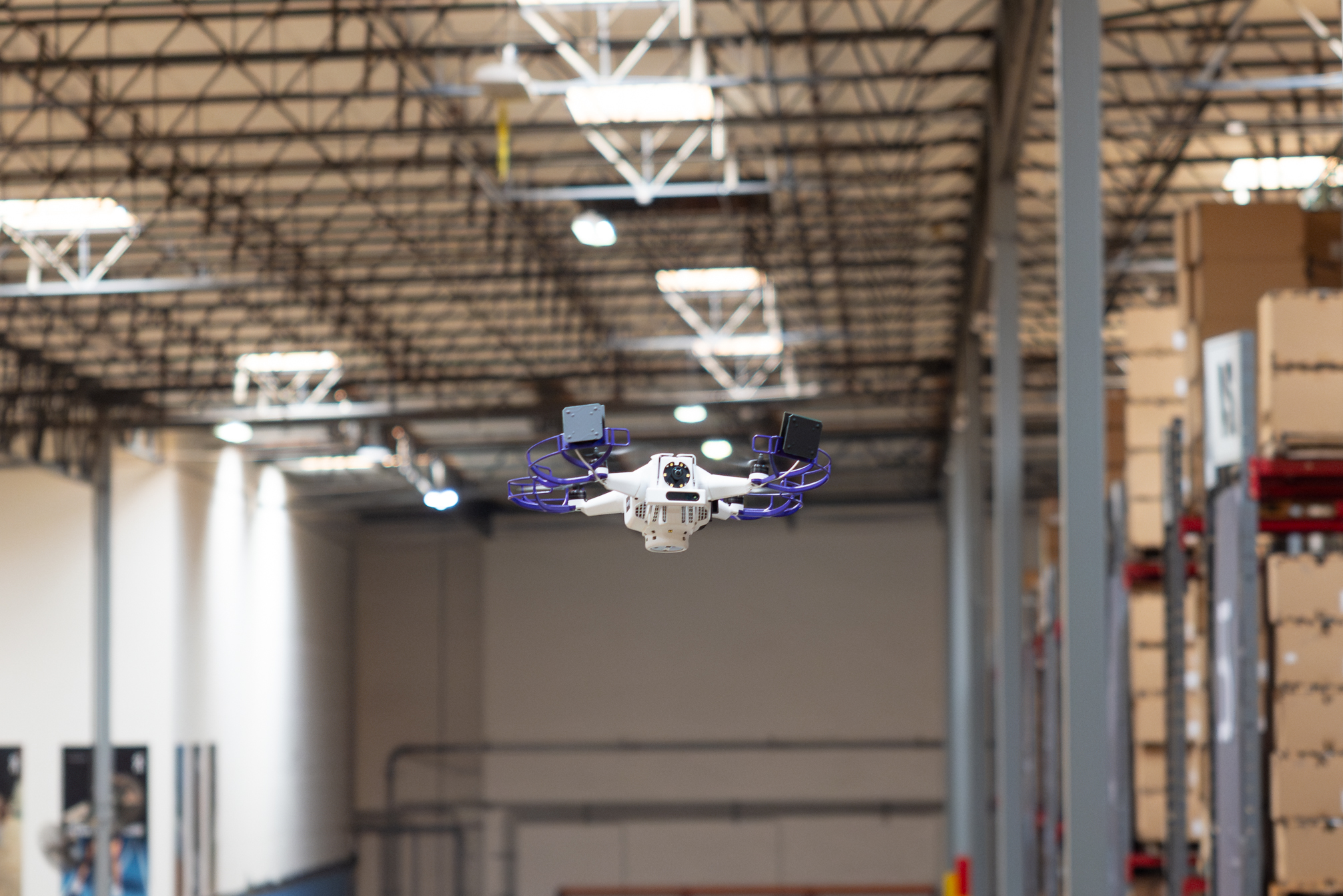Humans not needed: AI-powered autonomous drones fused with RFID technology set to revolutionize warehousing operations for better or worse?
Autonomous drones can hugely reduce labor needs

- Verity drones can scan 1,000 RFID tags per second with an accuracy rate of 99.9%
- RFID-enabled drones enhance visibility and real-time item tracking beyond traditional gate systems
- Technology handles low-priority tasks, ensuring human roles remain safe for now, but the future is uncertain
Verity, On, and Maersk recently collaborated to revamp warehouse operations through a combination of AI-powered drones and RFID technology.
Developed by Verity in Zurich, Switzerland, the autonomous drones navigate warehouse aisles independently while scanning RFID tags with precision.
The pilot project aims to enhance inventory tracking by integrating these two advanced systems, enabling greater visibility, control, and real-time item tracking beyond traditional RFID gate systems, thereby removing the need for human intervention.
The power of RFID-enhanced drones
Traditional RFID systems rely on fixed readers, limiting their ability to track inventory efficiently. By incorporating RFID into Verity’s AI-driven drones, warehouses can now benefit from a fully autonomous, mobile inventory tracking solution.
The drones can scan up to 1,000 RFID-tagged items per second, achieving an accuracy rate of 99.9%.
To validate the effectiveness of this technology, Verity, On, and Maersk conducted trials at a high-volume warehouse in California. Over 1,500 drone flights were completed and the system successfully performed 80 million RFID reads and tracked 1.25 million individual tags over a three-month period.
“At Maersk, we are committed to leveraging advancements in logistics through cutting-edge technology,” said Jason Walker, Head of Maersk's North American Contract Logistics.
Are you a pro? Subscribe to our newsletter
Sign up to the TechRadar Pro newsletter to get all the top news, opinion, features and guidance your business needs to succeed!
“The exploration of RFID-enabled drones in our warehouses is a testament to our dedication to innovation and operational excellence," he continued. "Importantly, this technology enhances the capabilities of our team, empowering them to focus on more strategic tasks and drive continuous improvement.”
The rapid advancement of warehouse automation raises concerns about human labor's future in the sector. Verity’s system reduces labor requirements by up to 92% for inventory control tasks.
However, the impact on overall warehouse employment is more complex. Automation has historically supplemented labor shortages rather than entirely replaced jobs. In many cases, human workers prioritize essential tasks, leaving inventory tracking as a lower priority. The new AI-powered drones fill this role, ensuring precise stock monitoring without affecting other warehouse functions.
"By fusing AI, autonomous data collection at scale, and RFID, we are bridging the gap between the digital and physical worlds to deliver complete visibility across supply chains,” said Verity CEO Raffaello D’Andrea.
It may be warehouses will evolve into larger, fully autonomous spaces, where machines handle every aspect of operations and tens of thousands of jobs will be lost. Technically, human jobs are safe because this technology is handling lower-priority tasks, but this may just be a sign of things to come.
You may also like

Efosa has been writing about technology for over 7 years, initially driven by curiosity but now fueled by a strong passion for the field. He holds both a Master's and a PhD in sciences, which provided him with a solid foundation in analytical thinking. Efosa developed a keen interest in technology policy, specifically exploring the intersection of privacy, security, and politics. His research delves into how technological advancements influence regulatory frameworks and societal norms, particularly concerning data protection and cybersecurity. Upon joining TechRadar Pro, in addition to privacy and technology policy, he is also focused on B2B security products. Efosa can be contacted at this email: udinmwenefosa@gmail.com
You must confirm your public display name before commenting
Please logout and then login again, you will then be prompted to enter your display name.